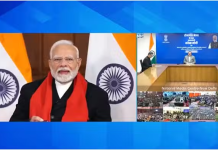NEW DELHI: The Supreme Court on Thursday asked the Maharashtra government why it has not allowed a single dance bar to operate and wondered if there was total moral policing in the state.
The top court questioned the state for denial of licences to dance bars and observed that with the changing times, the definition of obscenity has also changed.
A bench of justices A K Sikri and Ashok Bhushan said now even the law and society have recognised live-in like relationships, which earlier were not acceptable.
Questioning the state government, the bench said why it has not given a single licence for operation of dance bars even after court’s repetitive orders and rejected applications.
“It seems like total moral policing is going on in the state,” the bench said.
Senior advocate Shekhar Naphade and advocate Nishant R Katneshwarkar, appearing for Maharashtra, said that all the 81 applicants who sought licences for dance bars did not have clearances from fire department, among other things.
On the fateful night of December 28-29, last year, a massive fire had swept through two resto-pubs at the Kamala Mills compound in central Mumbai, resulting in the death of 14 people.
Mr Naphade further said that in 30 years of his association with Mumbai, he have hardly seen a single restaurant which is fire compliant.
He contended that even today society at large has not changed as far as perception is concerned as no traditional families would allow their children to visit places like dance bars.
The senior lawyer said whenever a young boy and girl are seen together, adverse inferences are drawn.
The bench observed that with the change of time, the definition of obscenity has also changed and now a days even live-in relationships are accepted by the society and the law (the court referred to the domestic violence Act), which earlier was not acceptable.
“Earlier, filmmakers used to show two flowers or two birds chirping instead of showing kiss or love making scenes in movies but now the time has changed”, the bench said in a lighter vein.
Hotel and restaurant owners, bar girls and others have challenged the new law — the Maharashtra Prohibition of Obscene Dance in Hotels, Restaurants and Bar Rooms and Protection of Dignity of Women (Working therein) Act, 2016 by separate petitions.
At the outset, senior advocate Jayant Bhushan, appearing for hotel and restaurants owners who have challenged the new law regulating dance bars, said, under the new law, the state has imposed conditions of installation of CCTV cameras in dance bars, which was in violation with the Right to Privacy.
“People visiting the dance bar may not want to be seen on CCTV cameras or even the bar girls may not want them to be seen on the cameras. This was violation of fundamental rights,” he said.
The bench, said, the CCTV installation may not be disputed as it could help in collecting evidences after an incident at the bar.
“The question is whether the dance bars can be considered as public place as in public place CCTV can be installed,” the court said.
Mr Naphade intervened and said “dance bar is a public place”.
Mr Bhushan further argued that there is no empirical data to show that bar girls are trafficked or coerced to take up the job in entirety.
He said that there cannot be a blanket allegation or the data suggests that bar girls indulge in obscene dance or in the flesh trade.
“Moreover, indulging in sex trade in India is not illegal per se but what is illegal under the Immoral traffic Act is running a brothel or trafficking,” he said.
He said that people in well-off places say that the dance bars are immoral but at the ground level it is not such situation.
“It is wrong to take a moralistic view of the dance bars,” he said.
The hearing remained inconclusive and would continue on August 23.
On Wednesday, the apex court had commenced final hearing on pleas of hotel and restaurant owners challenging a Maharashtra law imposing new restrictions on licensing and functioning of dance bars in the state.
The Maharashtra government, in an affidavit filed before the court, had earlier defended the operation of a new law meant to regulate licensing and functioning of dance bars in the state.
“It was observed that such dances were derogatory to the dignity of women and were likely to deprave, corrupt or injure public morality,” the state government had said in its reply.
“It was also brought to the notice of the state government that the places where such dances were staged were used as places for immoral activities and also as a place for solicitation for the purpose of prostitution,” it had said.














































